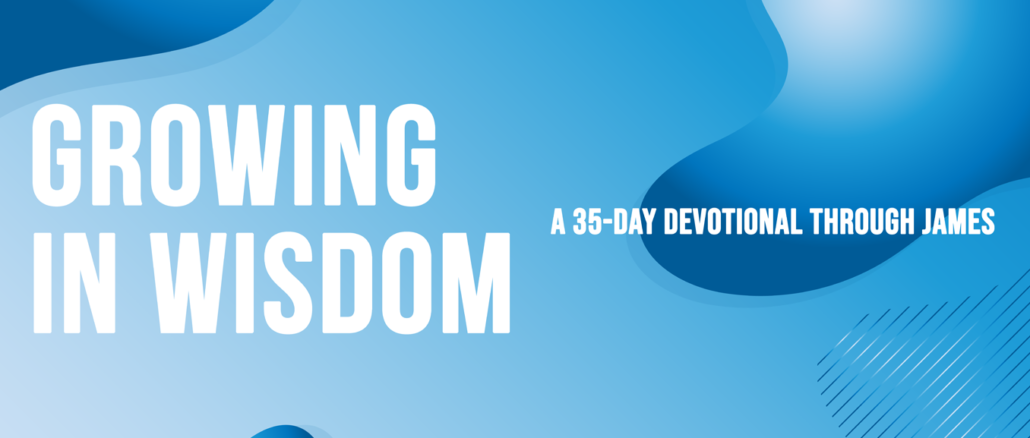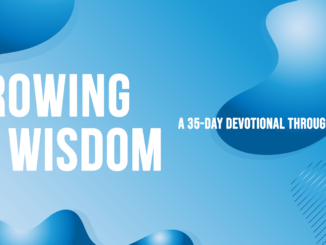
By Charles Lyons, retired pastor of Armitage Baptist Church, Chicago, Il
Read James 5:10-11.
Can you survive? Yes. Can you thrive? YES. How?
Overcome with emotion, unable to continue the funeral service, the pastor passed his Bible to the pastor next to him. But that pastor, also fighting back tears, handed his Bible to another man.
The Sudanese Christians had gathered to mourn five children, killed as they ran for shelter during a government bombing. Although death and destruction were nothing new to these believers, the loss of these children was especially difficult. “How do you get used to this?” someone asked the pastor, “You don’t,” he whispered.
So much suffering! All kinds of suffering, from life-altering to thorn in the flesh. The bad marriage. Singleness. Emotional wounds. Stuck in the wrong job. Wayward child. Betrayal. Physical pain. Addicted family member. Loss of a loved one. Someone telling lies on you. The helplessness! The waiting! The hopelessness! The agonizing! The questions! Did I mention the waiting?
Can you survive? Yes. Can you thrive? YES. How?
Today’s text is in the context of James encouraging those who are suffering. It’s the first thing he addresses. Suffering was common to first-century believers. Living as a misunderstood minority in a society unacquainted with the true God, they suffered as a result of their faith.
We need perspective. James points us to persevering prophets. They were God’s handpicked messengers, yet they suffered. The word refers to suffering resulting from injustice or someone’s evil efforts. They embraced the greatness of their mission, counting their suffering as insufficient reason to quit. They believed God was in charge. They believed He was with them. They believed God was their helper. God’s servants exhibited fortitude and steadfastness.
James points to Job. Job cried, moaned, groaned, argued, and complained, but he endured. “Though He slay me, yet will I trust Him.” He entrusted himself to God in the most primitive, basic, real, practical way. God was using him as a cosmic example of endurance, trust, and steadfastness … but Job was unaware.
James notes the end of Job’s story, encouraging us to endure our suffering, rest in God’s character, and expect to experience His compassion and mercy.
- Can I believe I am blessed (in a place of God’s favor and strength) as I endure suffering?
- Will I trust God’s purposes are being accomplished as I endure suffering?
- May I declare my faith that God is using me in my suffering, though I don’t know how?
- Dare I rest in God’s character, truly expecting an outcome, an end, in keeping with His compassion and mercy?
Yes. Yes, I can. Yes, I will endure.
James notes the end of Job’s story, encouraging us to endure our suffering, rest in God’s character, and expect to experience His compassion and mercy.
Reflective Questions:
- Who are some examples from the Bible that endured great suffering? How did God reveal Himself to them? What did they learn as a result?
- Who is someone in your life that you have seen endure great suffering? Did they trust God through the process? What can you learn from their experience?
- How does the illustration of Job serve as an example of endurance, trust, and steadfastness in the face of suffering?
Memory Verse:
Indeed we count them blessed who endure. You have heard of the perseverance of Job and seen the end intended by the Lord—that the Lord is very compassionate and merciful. James 5:11
Prayer:
Dear God, I know that in this life, I will have to endure difficult times. Help me when those times come to place my trust completely in You. I am thankful that you are compassionate and merciful.
Related Scriptures:
Psalm 115:3; Psalm 23:4; Psalm 54:4; Hebrews 11:32-38; Matthew 5:11-12; Job 1:21-22; Exodus 34:6; Isaiah 55:6-7


Very Good, Thanks for your heart in this.